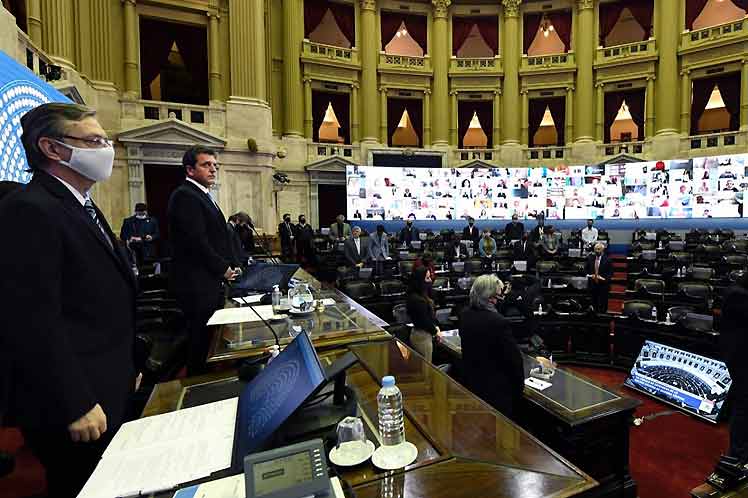Legislators will analyze initiatives such as the modification of Article 213 of the Penal Code to strengthen the confrontation with these behaviors and will consider the establishment of sentences of three months to two years in prison, fines, dismissals, and disqualification from holding public office for 10 years, among others.
They will also study actions to prevent those who defend state terrorism from becoming candidates for elective positions and will debate the creation of an Observatory for Democratic Coexistence, whose objectives will be to design academic actions against hate speech and violence.
Members of human rights defender groups such as the president of Abuelas de Plaza de Mayo, Estela de Carlotto, the representative of Madres-Línea Fundadora, Taty Almeida, and the member of Hijos Charly Pisoni, among others, are invited to the session.
These organizations recently presented a bill that proposes to prevent and punish conduct and public statements that deny, minimize, justify, legitimize, or vindicate the crimes committed during the last civil-military dictatorship (1976-1983).
The initiative makes human rights training mandatory for all functionaries and workers and advocates modifying the Audiovisual Communication Services Law to prevent the dissemination of content of this type.
In recent months, Argentina has seen with concern the resurgence of acts and speeches that deny the crimes perpetrated by the military regime that disappeared 30,000 people and separated hundreds of children from their families.
jrr/llp/oda/gas









